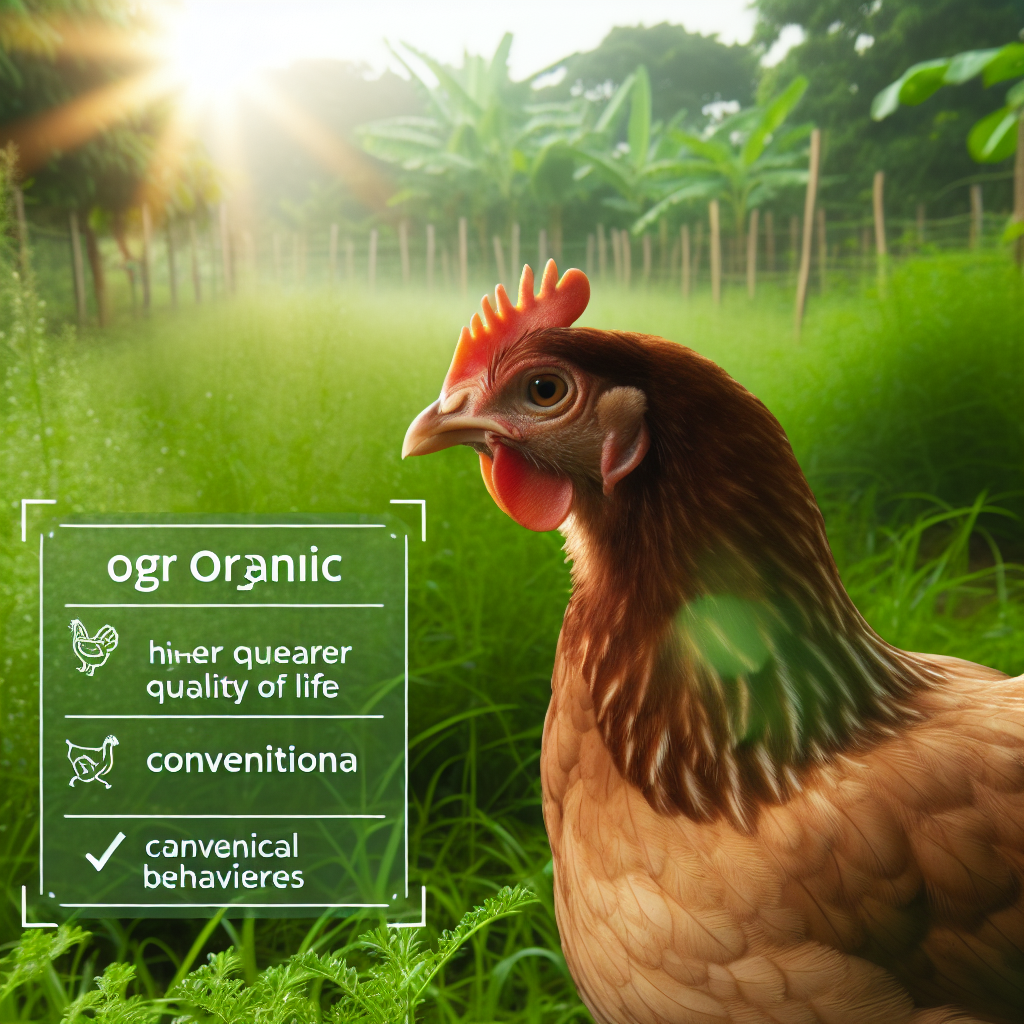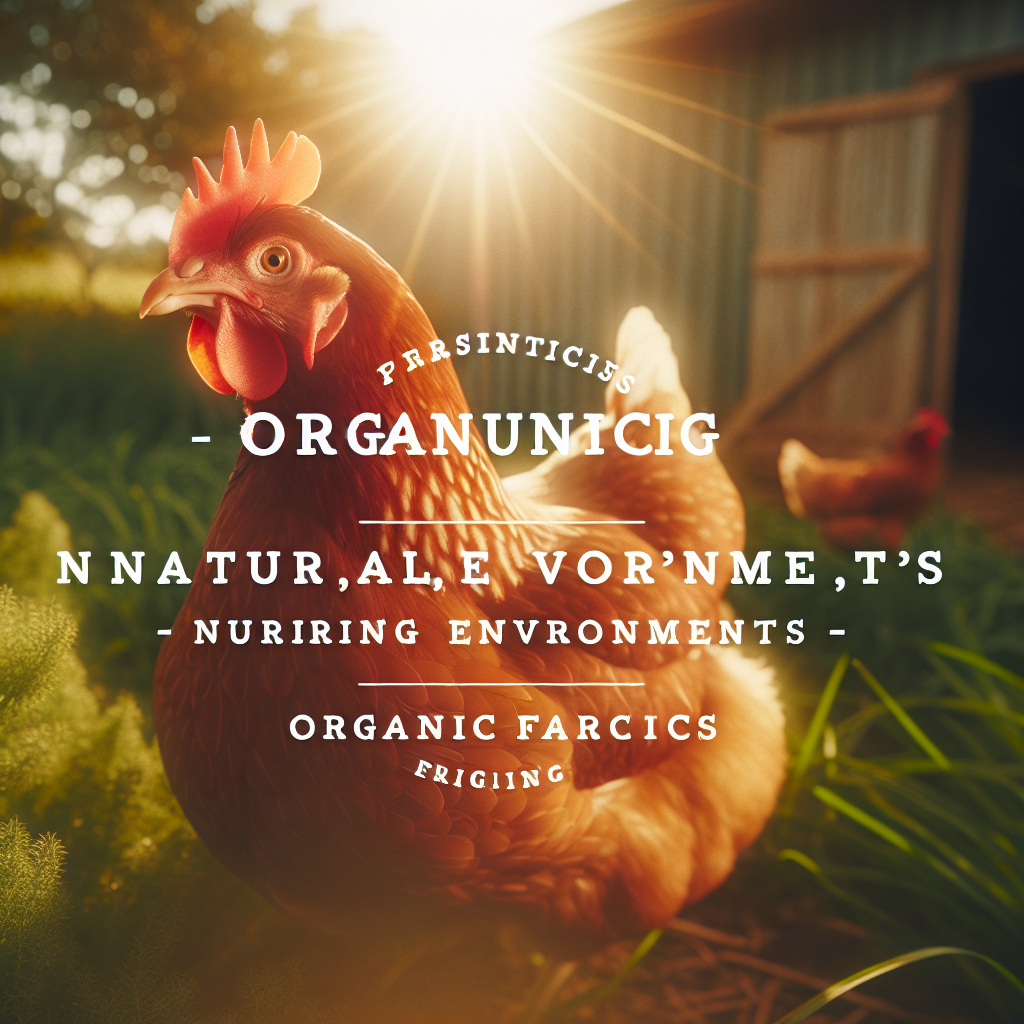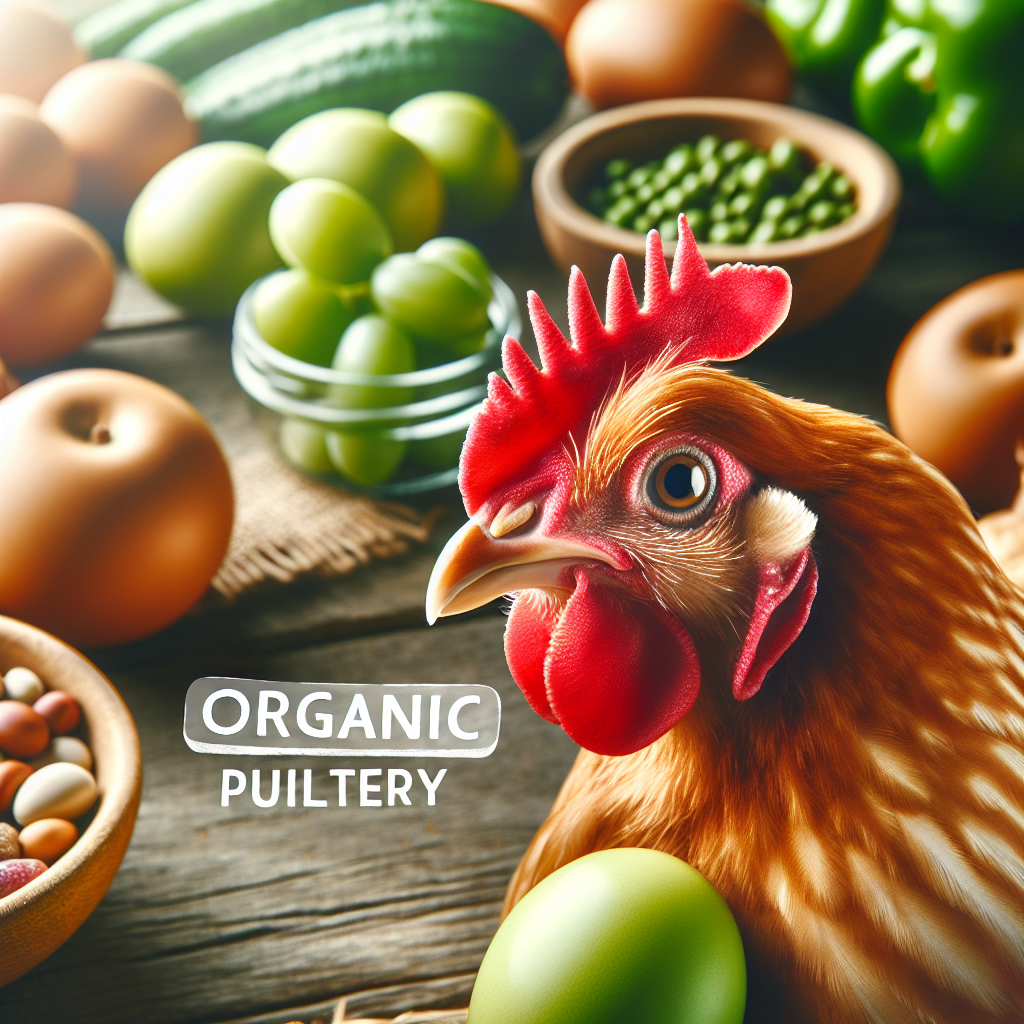If you’re an organic farmer or considering starting your own organic farm, you may be wondering whether certain breeds of chickens are better suited to this type of farming. You want to ensure that the chickens on your farm not only thrive in their environment, but also contribute to the organic practices you uphold. This article aims to explore the topic and shed light on whether specific breeds of chickens are indeed better suited to organic farming. So, let’s dive in and discover how different breeds can play a role in the success of your organic farm.
Benefits of Organic Farming
Organic farming has gained popularity in recent years due to its numerous benefits for both the environment and the consumers. If you are considering venturing into organic farming, one crucial aspect to consider is the choice of chicken breeds. Selecting the right chicken breeds can greatly impact the success of your organic farm. In this article, we will explore the factors to consider when choosing chicken breeds for organic farming and discuss some popular options that have proven to be well-suited for organic practices.
Factors to Consider in Choosing Chicken Breeds for Organic Farming
Nutritional Needs
When it comes to organic farming, providing a well-balanced diet for your chickens is of prime importance. Different chicken breeds have varying nutritional requirements, so it is essential to choose breeds that can thrive on an organic diet. Look for breeds that are adaptable and can obtain the necessary nutrients from organic sources such as foraging, insects, and vegetation.
Climate Adaptability
Considering the climate of your region is crucial when selecting chicken breeds for organic farming. Some breeds are more heat-tolerant, while others are better suited for colder climates. Ensure that the breeds you choose can withstand the temperatures and weather conditions of your specific area, as this will contribute to their overall health and productivity.
Disease Resistance
Organic farming often emphasizes minimal use of antibiotics and chemicals for disease control. Therefore, it is important to choose chicken breeds that have a natural resistance to common diseases. Breeds that have a robust immune system and a history of resistance to prevalent diseases in your region will reduce the likelihood of needing medical intervention.
Foraging Ability
One of the key aspects of organic farming is allowing chickens to exhibit their natural behaviors, such as foraging for food. Certain chicken breeds are known for their excellent foraging ability, which makes them well-suited for organic farming. These breeds can find a substantial portion of their diet through foraging, reducing the reliance on commercial feeds and maximizing the use of natural resources in your farming system.
Egg-Laying Performance
For many organic farmers, egg production is a valuable aspect of their operation. Since organic eggs are in high demand, selecting chicken breeds with a good egg-laying performance is essential. Look for breeds that not only lay a decent number of eggs but also have consistent egg quality. Breeds that are known for their reliability, such as regular and stable egg production, should be given a priority.
Temperament
The temperament of chicken breeds can also play a significant role in organic farming. Some breeds are more docile and friendly, while others may be more skittish or aggressive. Considering the handling and welfare of your chickens, as well as the safety of yourself and your farm staff, it is crucial to choose breeds that have a calm and cooperative temperament. Friendly breeds are easier to manage, reducing stress for both the birds and the handlers.
Popular Chicken Breeds for Organic Farming
1. Rhode Island Red
The Rhode Island Red is a popular choice among organic farmers for its adaptability and excellent egg-laying abilities. Originating from the United States, this breed is known for its resistance to common diseases and its ability to thrive in various climates. Rhode Island Reds are also great foragers and can provide a significant portion of their diet through free-ranging, making them well-suited to organic farming practices.
2. Sussex
Originally from England, the Sussex breed is renowned for its dual-purpose nature. Sussex chickens not only excel in egg production but also have a good meat quality. They are highly adaptable to different climates and have a calm temperament, which makes them suitable for organic farms. With their foraging abilities and strong disease resistance, Sussex chickens are a popular choice among organic farmers worldwide.
3. Plymouth Rock
The Plymouth Rock breed, also known as Barred Rock, is a widely recognized breed suitable for organic farming. Originating from the United States, Plymouth Rocks are known for their friendly temperament and adaptability to various climates. They have good egg-laying capabilities and are proficient foragers, making them an excellent addition to organic farming operations that prioritize sustainability and self-sufficiency.
4. Australorp
Originating from Australia, the Australorp breed is highly regarded for its outstanding egg-laying performance. These chickens can lay an impressive number of large brown eggs, making them a sought-after breed for organic egg production. Australorps are hardy and adaptable, thriving in different climates. They have a calm and friendly temperament, which adds to their appeal for organic farmers.
5. Orpington
The Orpington breed, hailing from England, is known for its robust size and gentle nature. Orpingtons are excellent layers of large brown eggs, making them a favorite among organic farmers. They are adaptable to different climates and have a calm and docile temperament, making them easy to handle. With their foraging abilities and resistance to diseases, Orpingtons are well-suited for organic farming practices.
6. Leghorn
Leghorns are a popular breed known for their exceptional egg-laying abilities. Originating from Italy, Leghorns can lay a large number of white eggs, making them ideal for organic egg production. They are highly active and agile birds, known for their ability to forage efficiently. Leghorns can adapt well to different climates and have good disease resistance, making them suitable for organic farming systems.
7. New Hampshire
The New Hampshire breed, originating from the United States, is known for its robust growth and excellent meat quality. While also being capable egg layers, New Hampshires are often favored by organic farmers for their dual-purpose nature. They are adaptable to different climates and have a friendly temperament, making them an excellent choice for organic farming operations looking for a versatile breed.
8. Barred Rock
Barred Rocks, or Plymouth Rocks, are versatile chickens that thrive in organic farming systems. These chickens originated from the United States and are highly adaptable to different climates. Barred Rocks have excellent egg-laying capabilities and are known for their calm temperament, making them easy to handle. Their disease resistance and foraging abilities make them well-suited for organic farming practices.
9. Wyandotte
Wyandottes are a popular breed known for their beautiful feather patterns and their suitability for organic farming. Originating from the United States, Wyandottes are adaptable to different climates and have good disease resistance. They have a calm temperament and are known for their excellent egg-laying abilities. With their attractive appearance and suitability for organic practices, Wyandottes are often a preferred choice among organic farmers.
10. Marans
The Marans breed, originating from France, is famed for its dark chocolate-colored eggs. Marans are highly valued by organic farmers for their ability to produce eggs with rich, flavorful yolks. They have a calm temperament and are adaptable to different climates, making them a favored breed for organic egg production. With their aesthetic appeal and excellent egg quality, Marans are a great addition to organic farming operations.
Conclusion
When it comes to organic farming, choosing the right chicken breeds is crucial for the success of your operation. Consider the nutritional needs, climate adaptability, disease resistance, foraging ability, egg-laying performance, and temperament of the breeds you select. The Rhode Island Red, Sussex, Plymouth Rock, Australorp, Orpington, Leghorn, New Hampshire, Barred Rock, Wyandotte, and Marans are all popular chicken breeds that have proven to be well-suited for organic farming practices. By selecting the breeds that align with your goals and farming conditions, you can ensure a productive and sustainable organic farm.




